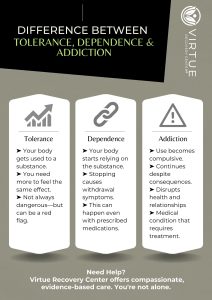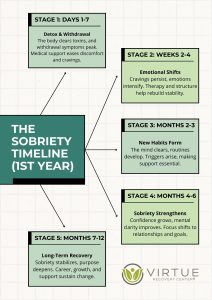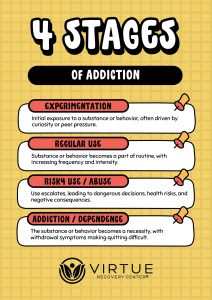Key Takeaways
- Misusing prescription drugs can lead to addiction, health issues, and overdose.
- Opioids, stimulants, and CNS depressants are the most commonly abused medications.
- Treatment programs provide effective solutions for overcoming addiction and reclaiming health.
Introduction
Prescription drugs are often vital for treating various medical conditions, from chronic pain to anxiety. But when these medications are misused—taken in ways not prescribed by a doctor—they can become dangerous and even deadly. Prescription drug abuse is a growing problem, leading to addiction, severe health risks, and, in many cases, loss of life.
This article explores the dangers of prescription drug abuse, the signs of addiction, and the treatment options available to those in need. By understanding the risks, you or your loved one can take the first steps toward recovery and a healthier future.
What is Prescription Drug Abuse?
Prescription drug abuse occurs when someone uses a medication in a way other than prescribed. This can include taking higher doses, using someone else’s medication, or consuming drugs for recreational purposes.
Examples of Prescription Drug Misuse:
- Taking opioids like OxyContin or Vicodin to experience a “high.”
- Using stimulants like Adderall or Ritalin to stay awake or improve focus during exams.
- Abusing CNS depressants, such as Xanax or Valium, to feel calm or sedated.
Why Do People Misuse Prescription Drugs?
There are several reasons individuals may turn to prescription drug misuse, including:
- Managing physical pain or emotional distress.
- Coping with anxiety, stress, or trauma.
- Enhancing focus, energy, or performance in academic or work settings.
While some people believe prescription drugs are “safer” than illicit substances, misuse can quickly lead to addiction and dangerous consequences.
Commonly Abused Prescription Drugs
Opioids
- Examples: OxyContin, Vicodin, and oxycodone.
- Prescribed For: Pain relief.
- Dangers:
- Slows breathing and heart rate, increasing the risk of overdose.
- Highly addictive, often leading to physical dependence.
Stimulants
- Examples: Adderall, Ritalin, Concerta.
- Prescribed For: ADHD and sleep disorders.
- Dangers:
- Increases heart rate and blood pressure, potentially causing heart problems.
- Misuse can lead to paranoia, aggression, and addiction.
CNS Depressants (Sedatives)
- Examples: Xanax, Valium, and alprazolam.
- Prescribed For: Anxiety and sleep disorders.
- Dangers:
- Slows brain activity, causing drowsiness and impaired coordination.
- Risk of seizures and withdrawal symptoms if stopped suddenly.
Other Misused Medications:
Even over-the-counter medicines, like cold remedies containing dextromethorphan (DXM), can be abused for their mind-altering effects, leading to significant health risks.
Dangers and Deadly Risks of Prescription Drug Abuse
Addiction and Dependence
Repeated misuse of prescription drugs can alter the brain’s chemistry, creating physical and psychological dependence. People often need higher doses over time to feel the same effects, leading to addiction.
Overdose
Overdosing on prescription drugs is a life-threatening risk. Combining medications, such as opioids and CNS depressants, or taking too much can result in:
- Slow or stopped breathing.
- Coma.
- Death.
Long-Term Health Issues
Prolonged misuse of prescription drugs can damage the heart, liver, kidneys, and central nervous system. Additionally, misuse can increase the risk of mental health problems like anxiety, depression, or paranoia.
Warning Signs and Symptoms of Prescription Drug Abuse
Recognizing the signs of misuse is essential for early intervention.
Behavioral Signs:
- Taking larger doses or using drugs more frequently than prescribed.
- “Doctor shopping” to obtain multiple prescriptions.
- Stealing or forging prescriptions.
Physical Signs:
- Drowsiness, confusion, or slow breathing (opioids).
- Restlessness or rapid speech (stimulants).
- Poor coordination or slurred speech (depressants).
Emotional Signs:
- Mood swings, anxiety, or depression.
- Irritability or sudden outbursts.
If you notice these signs in yourself or someone you love, seeking help immediately can prevent further harm.
How Prescription Drug Abuse Leads to Addiction
When someone misuses prescription drugs, they alter the brain’s reward system.
How Addiction Develops:
- Initial Use: Using medication as prescribed.
- Misuse: Taking higher doses or using drugs recreationally.
- Tolerance: Needing more of the drug to feel the same effects.
- Dependence: Experiencing withdrawal symptoms when not using the drug.
- Addiction: Losing control over use despite harmful consequences.
Addiction is a medical condition, not a moral failing. Understanding this can help remove the stigma and encourage individuals to seek treatment.
Treatment Options for Prescription Drug Addiction
Medical Detox
Detox is the first step in recovery, where the body eliminates the drug. This process is best done under medical supervision to manage withdrawal symptoms safely.
Medication-Assisted Treatment (MAT)
MAT uses FDA-approved medications like buprenorphine or methadone to reduce cravings and withdrawal effects, especially for opioid addiction.
Therapy and Counseling
- Cognitive Behavioral Therapy (CBT): Helps individuals identify triggers and develop healthier coping mechanisms.
- Group Therapy: Provides peer support and accountability.
- Family Therapy: Helps rebuild trust and repair relationships.
Rehab Programs
- Inpatient Rehab: A structured environment offering 24/7 care for individuals with severe addiction.
- Outpatient Rehab: Flexible treatment for those who need support while maintaining daily responsibilities.
Long-Term Support
After completing rehab, ongoing therapy and support groups, such as Alcoholics Anonymous (AA) or SMART Recovery, are vital for preventing relapse and maintaining sobriety.
Conclusion
Prescription drug abuse is a serious issue with deadly consequences, but recovery is possible. By recognizing the dangers and seeking help, individuals can break free from addiction and build healthier lives.
Remember, addiction is not a sign of weakness—it’s a medical condition that requires support and professional care. If you or someone you love is struggling with prescription drug abuse, contact Virtue Recovery Las Vegas at 866-520-2861 to take the first step toward recovery.
FAQs
What is prescription drug abuse?
Prescription drug abuse occurs when medications are used in ways not prescribed, such as taking higher doses or using them recreationally.
What are the most commonly abused prescription drugs?
Commonly abused drugs include opioids (e.g., OxyContin, Vicodin), stimulants (e.g., Adderall, Ritalin), and CNS depressants (e.g., Xanax, Valium).
What are the risks of prescription drug abuse?
Abuse can lead to addiction, overdose, long-term health problems, and even death.
How can prescription drug addiction be treated?
Treatment options include medical detox, medication-assisted treatment, therapy, and rehab programs tailored to individual needs.
How can I tell if someone is abusing prescription drugs?
Signs include taking drugs inappropriately, mood swings, drowsiness, or “doctor shopping” for prescriptions.
Resources
https://nida.nih.gov/sites/default/files/rxreportfinalprint.pdf
https://medlineplus.gov/prescriptiondrugmisuse.html
https://drugabusestatistics.org/prescription-drug-abuse-statistics/













